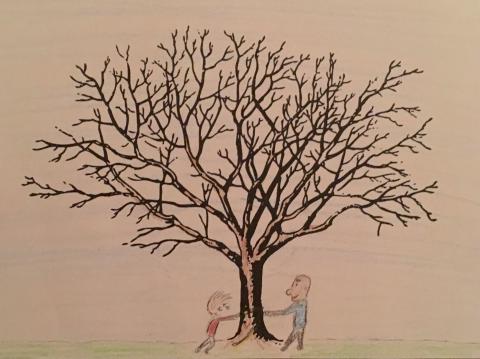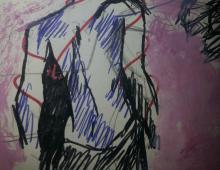Postcard: Assumptions About My Volunteering at the CFCF
By TJ von OehsenApril 25, 2016 - 17:48

Serendip is an independent site partnering with faculty at multiple colleges and universities around the world. Happy exploring!




Postcard #1 (1/26/2016)
“Learning communities are known to foster student engagement through collaborative learning as well as community- and problem-based learning. Students are taught to see connections among the courses they take, and community is a key condition for learning” (Rendón 39).
“We cling to notions of ‘independence’…as if it were an essential condition to all well-being” (Gorman).




Qui Alexander's talk really resonated with me last week. As I said during the discussion, I was wary about this class because I never connected his face to his name, and thought that I was going to be taught about yoga by a white woman. I was really uncomfortable with that idea. But hearing from Qui was really enlightening. What he said about the disconnect between social justice work and embodied practices really got to me, and made so much sense; marginalized bodies cannot be apolitical, and so take on a lot of violence inherently. The only way to eradicate that is to use embodied practices, and somehow, those practices like yoga are only available for the most privileged.
Righting Wrongs, Wronging Wrongs, and Restoration
My connection to this Glossary of Haunting came through my involvement with restorative justice. In being a member of the Bryn Mawr College Honor Board, I was able to experience restorative justice in action. Instead of attempting to right wrongs, restorative justice aims to heal individuals and communities. This may not look the same as the "revenge" Tuck & Ree discuss, but it acknowledges the damage and hurt that have been caused, rather than attempting to ignore them. A restorative justice model may not work to heal years of colonialism and settelor violences, and not much may, but it is certainly an approach that can work for individuals with relationships that can be repaired and built upon.


“The capacity to do research, in this broad sense, is also tied to what I have recently called ‘the capacity to aspire’ [. . .], the social and cultural capacity to plan, hope, desire, and achieve socially valuable goals. The uneven distribution of this capacity is both a symptom and a measure of poverty, and it is a form of maldistribution that can be changed by policy and politics” (Appadurai 176-77)



“Domination cannot exist in any social situation where a love ethic prevails. Jung’s insight, that if the will to power is paramount love will be lacking, is important to remember. When love is present the desire to dominate and exercise power cannot rule the day…concern for a collective good of our nation, city, or neighbor rooted in the values of love makes us all seek to nurture and protect that good…when small communities organize their lives around a love ethic, every aspect of daily life can be affirming for everyone” (All About Love, “Values: Living by a Love Ethic”)